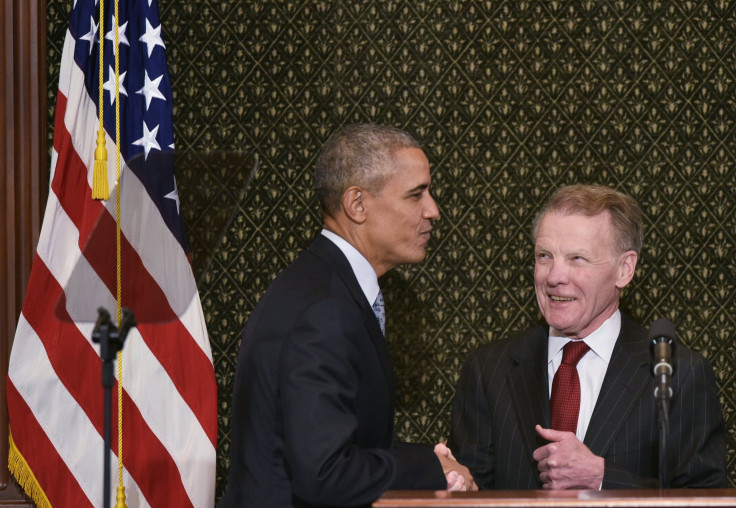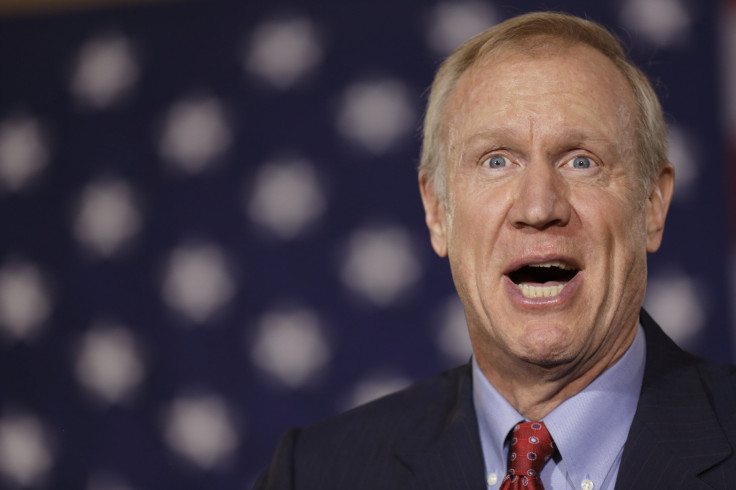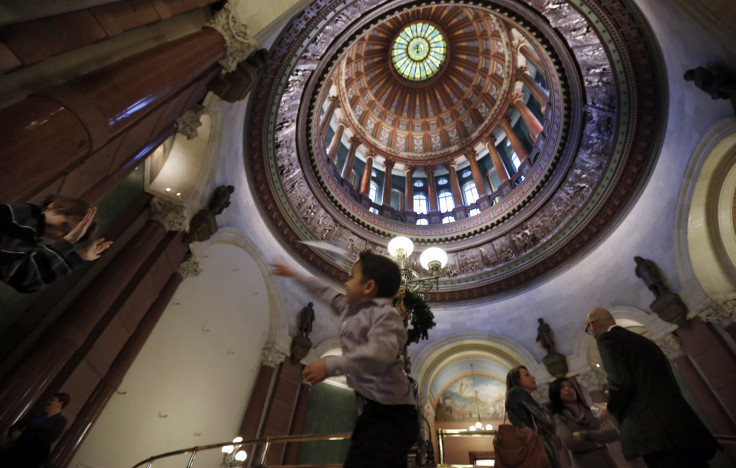Illinois Budget Woes: Political Brinkmanship Making Bad Spending Decisions Worse; Gov. Bruce Rauner In Battle Of Wills Against House Speaker Mike Madigan

Navigating Illinois politics always has been full of shenanigans. After all, Abe Lincoln once jumped out a Statehouse window to prevent the Legislature from adjourning.
More recently former Gov. Rod Blagojevich ran afoul of federal law horse trading over the U.S. Senate seat vacated by President Barack Obama.
And for years, the state has been funding its budgets with bond issues and pension deferments so lawmakers wouldn’t have to raise income taxes.
That ended a year ago. Sort of.
The Democrat-controlled Legislature and Republican Gov. Bruce Rauner have been going head-to-head for the past year over the fiscal 2016 budget. They never did resolve that one, and with fiscal 2017 approaching July 1, it doesn’t look like they’ll do any better this time around.
Rauner has made structural reforms a condition before he will agree to any tax increases. Those reforms include changes to workers’ compensation laws and the state’s relationship to its employee unions, similar to reforms adopted in Wisconsin and Kansas that have yet to produce the promised economic boost envisioned by their Republican governors.
The result has been a pileup of $7 billion in unpaid bills and a gutting of the state’s credit rating. Though negotiations have been underway for weeks on what Rauner has termed a “grand bargain,” with Tuesday’s legislative deadline approaching and lawmakers on a Memorial Day break, chances of a deal seem unlikely — though not impossible.
House Speaker Michael Madigan, a Chicago Democrat who has controlled the House since 1989, rules the Legislature with an iron fist. Rep. Ken Duncan, a Chicago Democrat, who stepped out of line by backing Rauner in a series of key votes, saw his political career torpedoed in the March primary. So much for Rauner’s pledge to use his personal wealth to undermine Madigan’s control.

Pundits have long said it’s Madigan, not whoever is in the governor’s chair, who really runs the state.
Whatever the truth, the stalemate has been especially hard on the state’s neediest citizens and schools, from elementary to college. Unless Springfield takes action, a number of public school districts, including Chicago, are threatening drastic cuts come fall, with some saying they may not be able to open their doors. Ditto for post-secondary schools.
Chicago State University, which serves primarily African-American students and opened in 1867, sent layoff notices to 900 employees and canceled spring break to enable it to graduate the 2016 class in April to cut expenses.
“[The budget stalemate] scares me to death,” downstate Harrisburg Schools Superintendent Mike Gauch told the Associated Press.
In the meantime the Legislature has been passing piecemeal spending bills, one of which alleviated the threat of a Wisconsin home for the disabled from kicking out Illinois residents who had been placed there. This week the House passed a budget that would give Chicago schools hundreds of millions of dollars and fund neglected social service agencies and universities but is $7 billion out of whack and facing a likely veto.

House Republican Leader Jim Durkin, whose district covers Chicago’s southwest suburbs, said during debate the situation is even worse than last year. House Majority Leader Barbara Flynn Currie of Chicago called the lack of a budget “unconscionable.”
Lawmakers return to the Capitol on Sunday ahead of Tuesday’s adjournment deadline. After Tuesday, any bill will require a supermajority to make it to Rauner’s desk. (Stopping the clock so that May 31 never ended, allowing for simple majority votes to continue, went out when digital came in.)
Rauner wants to make it more difficult for injured workers to claim compensation for job-related injuries and loosen collective bargaining rules before he will consider a tax increase. He has been meeting behind closed doors with legislative leaders, but the Chicago Tribune’s report on Madigan’s comments after the most recent confab makes it clear no compromise is in the offing.
“We sent a budget to the Senate that does not engage in hostage-taking. We’re not going to hold hostage people who need education, need healthcare, need social services. We’re not going to do that,” Madigan said.
The result is angst among those most affected by state spending and a worsening pension crisis, which also has yet to be dealt with in light of the state Supreme Court’s rejection of efforts to reform the system.
© Copyright IBTimes 2024. All rights reserved.












